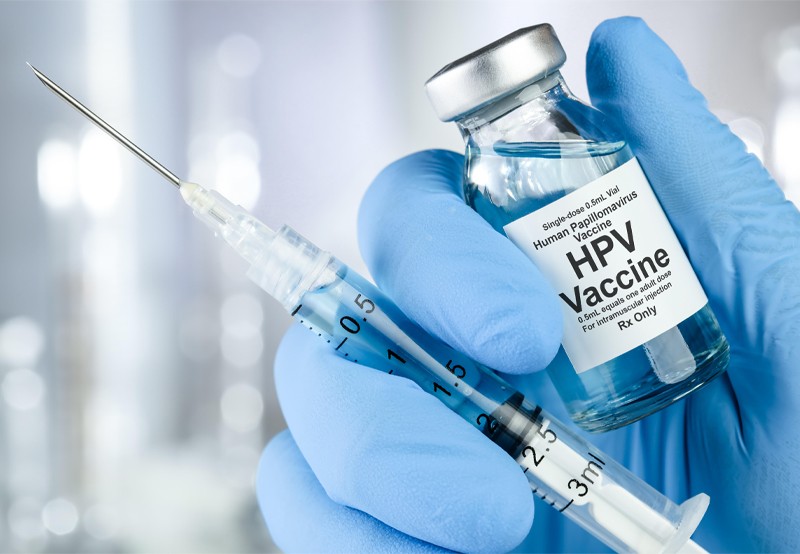The World Health Organisation (WHO) Country Representative, Dr. Walter Mulombo, has announced that the Human Papillomavirus (HPV) vaccine will be introduced by November 2023. Dr. Mulombo stated that the introduction of the HPV vaccine would help to save lives, as it has the potential to prevent more than 90 per cent of HPV-attributable cancers.
In Nigeria, an estimated 14,000 women are diagnosed with cervical cancer every year, and 7,968 women die from the disease annually. HPV is the most common viral infection of the reproductive tract, mainly transmitted through sexual contact, and most people become infected with HPV shortly after the onset of sexual activity. The WHO reports that two HPV types (16 and 18), which are common, are responsible for nearly 50 per cent of high-grade cervical pre-cancers.
Speaking at a media roundtable, Dr. Mulombo said, “We will introduce the Human Papillomavirus vaccine in November this year. We need to work towards that because the burden of cervical cancer is huge and unacceptable.” He added, “HPV vaccination is going to save a lot of lives, millions of lives in the future. We cannot miss that opportunity.”
Dr. Mulombo also emphasized that HPV vaccination is very effective, stating, “If it is introduced and implemented correctly, we will see that the huge burden of cervical cancer will disappear over time, when those that we are vaccinating now will become adults because it is mostly targeting adolescents.”
The government had previously promised to introduce the HPV vaccine into the national immunization schedule in March 2020, but the rollout has yet to be implemented 37 months later. Dr. Mulombo highlighted the importance of taking action to reduce the burden of cervical cancer, stating, “We shouldn’t behave the way we are behaving with trans fat, tobacco products, or sugary drinks; we know they are harmful but still, we are watching.”
Some African countries such as South Africa, Rwanda, Seychelles, Sierra-Leone, Kenya, Senegal, Malawi, Zimbabwe, Libya, Lesotho, Uganda, Botswana, and Mauritius have already introduced the HPV vaccine into their routine immunization schedules. Dr. Mulombo urged Nigeria to follow suit, stating, “HPV vaccination is very important, and we cannot afford to miss this opportunity to protect the health of women and girls.”
According to Dr. Faisal Shuaib, the Executive Director of the National Primary Health Care Development Agency (NPHCDA), the delay in introducing the HPV vaccine was due to the outbreak of COVID-19 and the need to prioritize the rollout of COVID-19 vaccines in the country. However, he confirmed that the government is committed to introducing the HPV vaccine as soon as possible.
In addition to the introduction of the HPV vaccine, Dr Shuaib stated that the NPHCDA has developed a cervical cancer prevention and control plan for Nigeria. The plan includes increasing awareness of cervical cancer, providing screening services to detect pre-cancerous lesions, and ensuring access to treatment for women diagnosed with cervical cancer.
Dr. Shuaib emphasized that the prevention and control of cervical cancer requires a comprehensive approach, including vaccination, screening, and treatment. He stated, “We need to take a multi-faceted approach to tackling cervical cancer, which includes vaccination, screening, and treatment. By doing this, we can reduce the burden of cervical cancer and save many lives.”
In conclusion, the introduction of the Human Papillomavirus vaccine is a crucial step towards reducing the burden of cervical cancer in the country. With an estimated 14,000 women diagnosed with cervical cancer and 7,968 deaths annually, the introduction of the vaccine is a welcomed development. The World Health Organization’s Country Representative, Dr. Walter Mulombo, emphasized the effectiveness of the HPV vaccine and how it has the potential to prevent over 90% of HPV-attributable cancers. It is, therefore, important for the government to fulfill its promise of introducing the vaccine into the national immunization schedule and ensure proper implementation to achieve the desired outcome of reducing cervical cancer incidence and mortality.



